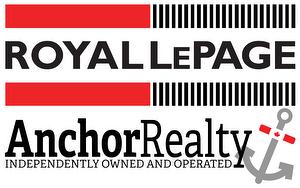


Mortgage information
Mortgage Basics
Below is some information about how mortgages work here.
Where to go for a mortgage:
A bank or a mortgage broker. If you have a good relationship with your bank check there first but check the rate they are giving you before you commit. Mortgage brokers are usually commission mortgage lenders. They are paid for placing mortgages with lenders. They sometimes work for the lender but often are independent and work for themselves. They usually have more lending options than a bank so they can get a better rate. They will usually go to you when you are available. We usually advise our buyers to go to a mortgage broker and have names of good ones to recommend to you.
Pre-approved mortgages:
Have a pre-approved mortgage in place before you start looking for a home. A pre-approved mortgage is a commitment from a lender to give you a mortgage, at a specific interest rate, subject to certain conditions. They will guarantee an interest rate for between 60-180 days. If the mortgage interest rate goes up while you're house hunting it doesn't affect you but if it goes down you can still get the lower rate. All lenders offer pre-approvals.
Posted interest rates:
Posted rates are negotiable. All lenders have what they call `Posted Mortgage Rates` but few borrowers pay the posted rate. The discount you receive varies and depends on your personal situation and the lending environment at the time. If you have some credit issues or jobs that are not secure you may not get any discount or be charged more than the posted rate.
High ratio versus conventional mortgage:
A high ratio mortgage is a mortgage that is between 80% and 95% of the appraised value or purchase price of the property, whichever is less. With this type of mortgage you pay a default insurance premium of between 1.25% and 3.5% of the mortgage amount. The premium is about 1.25% for 80% mortgage and rises as the percentage of value you borrow increases. This premium is added to your mortgage.
A conventional mortgage is mortgages under 80% of the value. There is no insurance premium.
Most buyers don't have the 20% down payment so they will have to get a high ratio mortgage.
Down payment:
You will normally need a minimum of 5% of the purchase price as a down payment, plus closing costs. Normally you can't borrow this against your credit cards or other sources but there are exceptions. You can get a gift from a parent or other close relative. You can also borrow from your RRSP for your down payment. See our RRSP section for more details.
Talk to a lender to ask exactly what you will require. Every case is different.
Amortization and term:
Amortization refers to the total length of time you will have to pay off your mortgage. You choose the length but it is a maximum of 25 years. The shorter the amortization the higher the mortgage payment.
The term of the mortgage refers to the time the interest rate is locked in. 5 years is about the maximum buyers choose. The longer the term the higher the interest rate.
Variable versus fixed mortgage rates:
Variable rate mortgage means your interest rate varies depending on the prime interest rate. The interest rate is usually prime less some percentage. For example prime minus .5%. You always have the option to change to a fixed rate mortgage if rates begin to go up.
Fixed rate mortgages means the interest rate is locked in for the term of the mortgage.
Variable interest rates are usually lower than fixed rates but there is always a risk that the prime rate will go up. Historically borrowers who choose variable rates saved many thousands of dollars but it has to be right for you.
Property Taxes and Your Mortgage:
Your monthly mortgage payment will include the monthly property taxes. For example if you are looking at a property that has property taxes of $3,600 a year you will pay $300 a month in your mortgage for property taxes. Property taxes depend on the assessed value of the property. IN HRM you can estimate the property taxes by multiplying the price of the house by 1.3%. We can provide you with an estimate of the taxes you will pay in your mortgage.
Your lender will qualify you on the basis of the mortgage cost plus the monthly property taxes.
Prepayment Penalties:
There are several reasons you may have to or want to payout your mortgage early. There may be huge penalties for doing so. The amount of the penalty varies tremendously between lenders. When comparing lenders you should ask what the prepayment penalties are going to be if you pay out before the end of your term. Tradition banks charge an interest differential between the POSTED INTEREST RATE at the time you took out your mortgage and the current interest rate. For example say you took out a 5 year mortgage at 2.75%. At the time the Posted Rate was 5%. Say you want to payout your mortgage after 3 years for some reason. Assume the rates haven't changed so the Posted Rate is 5% but the actual mortgage rate the lender is charging is still 2.75%. Your bank will charge you an interest differential penalty based on the Posted Rate minus your mortgage rate or 5% less 2.75% or 2.25% for the remaining days of your mortgage. In many cases this can be between $10,000 and $25,000.
There are several lenders, including some banks such as National Bank, that charge significantly less prepayment penalties then the Big Banks. These lenders still charge about eh same mortgage rate but the cost to get out early can be significant. One example I have seen showed the penalty of paying out an average mortgage after 3 years was almost $20,000 at several banks but less than $2,000 from National Bank and other lenders.
So you want to ask the "cost to get into the mortgage" which is the mortgage rate you will be paying but also ask what the "cost to get out " of the mortgage early would be.
Military and RCMP members should be aware that your mortgage prepayment is not covered anymore by Brookfield. So if you are posted before your 5 year term is up you may face large prepayment penalties. The good news is that several of the lenders are waiving the prepayment penalty for military and RCMP. So before you commit to a lender ask if they waive their penalties and if so get it in writing. To be safe you should only deal with a lender that agrees to waive their penalty. A good mortgage broker should be aware of which lenders waive the penalties.
Qualifying interest rates for mortgages
To qualify for a mortgage loan at a bank, you will need to pass a “stress test”. You will need to prove you can afford payments at a qualifying interest rate which is typically higher than the actual rate in your mortgage contract.
Credit unions and other lenders that are not federally regulated may choose to use this mortgage stress test. They are not required to do so.
The qualifying interest rate your bank will use for the stress test depends on whether or not you need to get mortgage loan insurance.
If you need mortgage loan insurance, the bank must use the higher interest rate of either:
- the Bank of Canada’s conventional five-year mortgage rate
- the interest rate you negotiate with your lender
If you don’t need mortgage loan insurance, the bank must use the higher interest rate of either:
- the Bank of Canada’s conventional five-year mortgage rate
- the interest rate you negotiate with your lender plus 2%
For example, say you apply for a mortgage at a bank and that you have a down payment of 5% of the value of the home. You’ll need to get mortgage loan insurance since your down payment is less than 20%.
Assume that:
- the interest rate you negotiate with your lender is 3.00%
- the Bank of Canada’s conventional five-year mortgage rate is 5.14%
You'd need to qualify at the higher of the two interest rates, which is the Bank of Canada’s conventional five-year mortgage rate, even if you'll be paying the lower interest rate in your mortgage contract.

